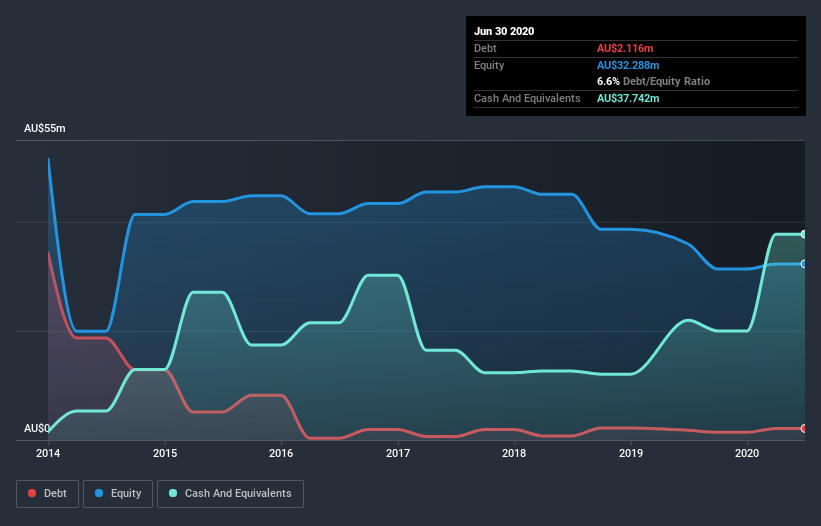Is BSA (ASX:BSA) A Risky Investment?

Warren Buffett famously said, 'Volatility is far from synonymous with risk.' So it might be obvious that you need to consider debt, when you think about how risky any given stock is, because too much debt can sink a company. We note that BSA Limited (ASX:BSA) does have debt on its balance sheet. But the more important question is: how much risk is that debt creating?
When Is Debt Dangerous?
Generally speaking, debt only becomes a real problem when a company can't easily pay it off, either by raising capital or with its own cash flow. If things get really bad, the lenders can take control of the business. However, a more frequent (but still costly) occurrence is where a company must issue shares at bargain-basement prices, permanently diluting shareholders, just to shore up its balance sheet. Of course, plenty of companies use debt to fund growth, without any negative consequences. When we examine debt levels, we first consider both cash and debt levels, together.
See our latest analysis for BSA
How Much Debt Does BSA Carry?
As you can see below, at the end of June 2020, BSA had AU$2.12m of debt, up from AU$1.77m a year ago. Click the image for more detail. However, it does have AU$37.7m in cash offsetting this, leading to net cash of AU$35.6m.
How Strong Is BSA's Balance Sheet?
The latest balance sheet data shows that BSA had liabilities of AU$98.9m due within a year, and liabilities of AU$16.3m falling due after that. On the other hand, it had cash of AU$37.7m and AU$59.6m worth of receivables due within a year. So its liabilities total AU$17.8m more than the combination of its cash and short-term receivables.
Given BSA has a market capitalization of AU$123.4m, it's hard to believe these liabilities pose much threat. But there are sufficient liabilities that we would certainly recommend shareholders continue to monitor the balance sheet, going forward. Despite its noteworthy liabilities, BSA boasts net cash, so it's fair to say it does not have a heavy debt load!
Shareholders should be aware that BSA's EBIT was down 47% last year. If that earnings trend continues then paying off its debt will be about as easy as herding cats on to a roller coaster. There's no doubt that we learn most about debt from the balance sheet. But ultimately the future profitability of the business will decide if BSA can strengthen its balance sheet over time. So if you want to see what the professionals think, you might find this free report on analyst profit forecasts to be interesting.
Finally, a company can only pay off debt with cold hard cash, not accounting profits. While BSA has net cash on its balance sheet, it's still worth taking a look at its ability to convert earnings before interest and tax (EBIT) to free cash flow, to help us understand how quickly it is building (or eroding) that cash balance. Over the most recent three years, BSA recorded free cash flow worth 70% of its EBIT, which is around normal, given free cash flow excludes interest and tax. This free cash flow puts the company in a good position to pay down debt, when appropriate.
Summing up
Although BSA's balance sheet isn't particularly strong, due to the total liabilities, it is clearly positive to see that it has net cash of AU$35.6m. And it impressed us with free cash flow of AU$17m, being 70% of its EBIT. So we are not troubled with BSA's debt use. When analysing debt levels, the balance sheet is the obvious place to start. But ultimately, every company can contain risks that exist outside of the balance sheet. Be aware that BSA is showing 3 warning signs in our investment analysis , you should know about...
Of course, if you're the type of investor who prefers buying stocks without the burden of debt, then don't hesitate to discover our exclusive list of net cash growth stocks, today.
This article by Simply Wall St is general in nature. It does not constitute a recommendation to buy or sell any stock, and does not take account of your objectives, or your financial situation. We aim to bring you long-term focused analysis driven by fundamental data. Note that our analysis may not factor in the latest price-sensitive company announcements or qualitative material. Simply Wall St has no position in any stocks mentioned.
Have feedback on this article? Concerned about the content? Get in touch with us directly. Alternatively, email editorial-team@simplywallst.com.



